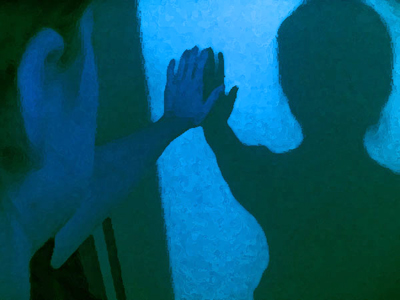All Nonfiction
- Bullying
- Books
- Academic
- Author Interviews
- Celebrity interviews
- College Articles
- College Essays
- Educator of the Year
- Heroes
- Interviews
- Memoir
- Personal Experience
- Sports
- Travel & Culture
All Opinions
- Bullying
- Current Events / Politics
- Discrimination
- Drugs / Alcohol / Smoking
- Entertainment / Celebrities
- Environment
- Love / Relationships
- Movies / Music / TV
- Pop Culture / Trends
- School / College
- Social Issues / Civics
- Spirituality / Religion
- Sports / Hobbies
All Hot Topics
- Bullying
- Community Service
- Environment
- Health
- Letters to the Editor
- Pride & Prejudice
- What Matters
- Back
Summer Guide
- Program Links
- Program Reviews
- Back
College Guide
- College Links
- College Reviews
- College Essays
- College Articles
- Back
That Girl
We picked her up on Saturday, December 23rd. It was supposed to be a winter day, with snow and sleet and chains out of their boxes and ready to go on the wheels of our car. First snow of the year, they said.
But it was sunny, instead. It was a rainbow day, with colors all over the melting snow. My brothers were upset because they wanted to try out their new sleds they’d gotten last spring at the spring Kmart sale. “Another day,” Mother said.
We picked her up in the bad part of town, where Mother always said there were mean men and guns and gangs. We didn’t know what those things meant, just to stay out of there.
She was eight, they said, two years older than I was, but she looked younger, maybe five or six. She had those scrawny legs, like the 50’s kids with the knobby knees, but her entire body was like that. Her eyelids were large and heavy, and they dominated her face, with its small thin mouth and pointy nose.
We weren’t supposed to say anything when we saw her, Mother had said in the car. “She might look different,” she’d said. “She’s sick.”
My curious, five-year old eyes weren’t scared, though, not like Tommy and Rick. I held my mother’s hand and bent down to where she was sitting on the floor.
“Hello,” I said, and she smiled at me, her lips curving up. It was a real smile--you could tell by the way her eyes seemed to open, how her entire face screamed “happy.”
The lady at the desk took Mother’s papers and handed her a paper bag. I’d learn later that evening that in it were pills, jars and jars of little white and long pink and fat orange capsules, four for the morning, seven for the night.
When we got home, Mother showed her the other bed in my room, and the drawers I’d cleared out of the dresser the day before. I couldn’t understand why all she had was a plastic bag. It was a small, clear one with handles, like the ones you get at Safeway if you only buy a candy bar and a bag of chips. She had a sweater in it, and a small, stuffed bear, which she gingerly placed on her bed.
The pills were dolled out that night. Mother asked me to fill a paper cup with water from the tap. There was complaining, and groaning, and shrieks from the girl. The pills were too big, she said. They didn’t fit in her throat.
She snored that night, making noises I didn’t think possible of a child that small. I soon grew used to it, though, and waking up at five a.m. with her protests about swallowing pills.
We bathed together, she and I and Sammy, because he was only four. Her ribs fascinated him, the way they jutted out. He would trace them with his fingers while Father washed his hair. Even he understood she was delicate. He’d touch the scars, too, saying, “Does this hurt?” She’d always shake her head, smile, but he’d take his hand away anyway.
And then one day her mother came. She was a frazzled woman, with her hair falling out of a messy bun and the way she kept forgetting her purse in various rooms of the house. She seemed on edge, too, the way she eyed our couch and the methodical containers in which my mother had organized her daughter’s pills.
She didn’t try to make conversation, just picked up the pills and her daughter, and they left.

Similar Articles
JOIN THE DISCUSSION
This article has 0 comments.
